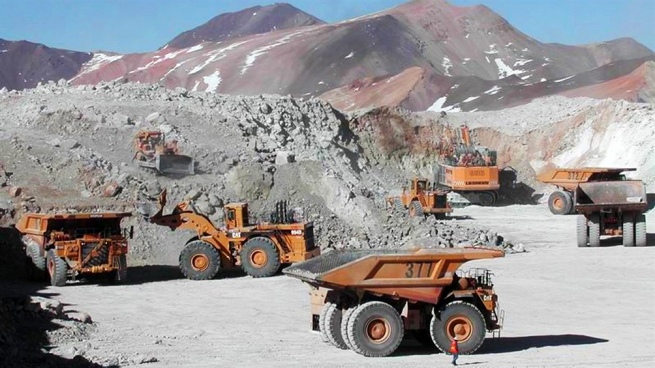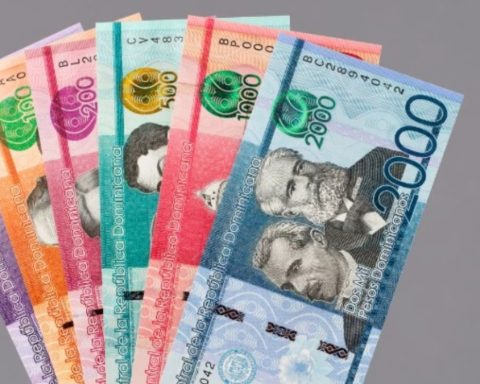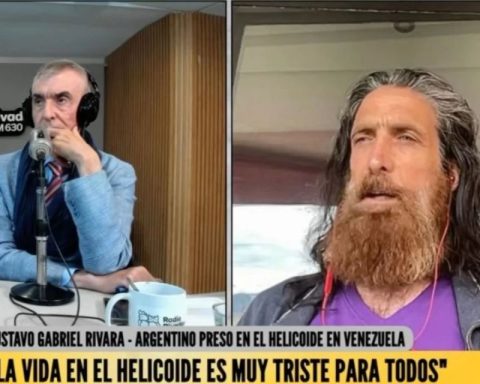The Ministry of Productive Development announced on Tuesday the launch of the Information System Open to the Community on Mining Activity in Argentina (Siacam) and the National Table on Mining Open to the Community (Memac), both unprecedented initiatives, with the participation of business chambers and unions that make up the activity.
In this regard, Minister Matías Kulfas affirmed that the government’s vision of mining is one that “takes care of the environment, develops communities, generates productive development, and stimulates national development,” as opposed to the extractivist approach.
In this regard, he noted that “The mining activity generates more than 30,000 jobs directly and 80,000 considering the indirect ones”and added that it is “a sector that generates a lot of foreign currency”.
This was expressed in statements made this Tuesday to El Destape Radio, in which he differentiated the view held by the Government from the “extractivist” approach to mining, which “destroys the environment.”
In this sense, he stressed that the approach with which the sector is currently approached “takes care of the environment, develops communities and generates productive development”, with which it is “an activity that stimulates national development”.
Open Information System for the Community
In accordance with the provisions of Resolution 89/22 published in the Official Gazette, Siacam will create the largest existing transparency system in Argentina for a productive sector, by providing detailed information on billing, exports, imports, payment of taxes, jobs, wages and a variety of environmental indicators and occupational accident rates, among others.
It will be coordinated by the Center for Production Studies (CEPXXI) in conjunction with the Directorate of Transparency and Mining Information of the Ministry of Mining, and will be an input to improve the quality of information and public debate on mining.
National Table on Mining Open to the Community
For its part, the Memac will be an instance of public debate on mining, where specialists from all over the country will be invited to present papers, academic papers and technical reports on the activity.
The Memac will be coordinated by the Ministry of Mining and the Unit of the Cabinet of Advisors of the national productive portfolio, and will be permanently integrated by unions directly and indirectly linked to mining activity, representatives of business chambers, of the Ministries of Health, Science, and Environment; Conicet, the National Interuniversity Council and the Federal Mining Council (Cofemin).
“From the SME entities that represent thousands of companies linked to mining and the gas and oil industry, we want to give a serious discussion about these problems”Sergio Echebarrena, leader of the Capipe
Regarding this, the president of the Argentine Industrial Union (UIA), Daniel Funes de Rioja, told Télam that “The issue of mining is central and strategic for the country”and stressed that, “obviously, there is a mining activity that can be developed by combining production with respect for the environment, which is clearly what developed countries do.”
“Our position is absolutely favorable to the creation of this working table (the Memac), and along these lines, in December the UIA established the working table on mining, because we consider it a fundamental factor for the development of the Andean provinces, not excluding but in particular”, said Funes de Rioja.
He indicated that “there is a very favorable echo to mining for interaction within the Argentine industrial agenda”, for which he remarked: “We celebrate the table and the inclusion of the UIA”.
Along the same lines, the general secretary of the Metallurgical Workers’ Union (UOM), Antonio Caló, highlighted in dialogue with Télam that “the call for Productive Development to the mining work table will allow us all to have an opinion on how it has to be the activity.
“We agree with mining being developed because it is an activity that is going to generate a lot of work,” said Caló, who stressed that “mining is a very important source of work that cannot be wasted.”
He stressed that, “well used, without environmental or water problems, it is an activity that must be exploited” because – he graphed – “it is money that is extracted from the earth and to which workers can access.”
“Mining is a very important source of work that cannot be wasted”Antonio Caló, general secretary of the UOM
For his part, Sergio Echebarrena, leader of the Argentine Chamber of Suppliers of the Petro-Energy Industry (Capipe), stressed in statements to Télam that “mining allows for growing exports, added value, development of local suppliers, increased registered employment and with salaries above the average”, and stated that, “like all industrial activity, it produces an environmental impact, but there are methods, procedures and technologies to minimize it”.
“From the SME entities that we represent thousands of companies linked to mining and the gas and oil industry, we want to give a serious discussion about these problems, and for this reason we welcome the Ministry’s initiative to implement an exchange and discussion table”, Echebarrena maintained.
The also leader of the General Business Confederation (Cgera) stressed that “in addition to environmental problems, SMEs also want to discuss the production model, the appropriation of income generated by the exploitation of non-renewable natural resources.”
“To say it clearly and with all due respect, just as in the oil and gas industry we believe that we should be like Norway and not like Nigeria, regarding mining we think of Australia and not Peru, where years of mining industry did not result in a notable improvement in the living conditions of the people”, concluded Echebarrena.

















